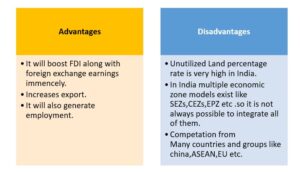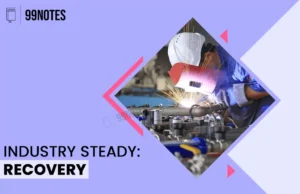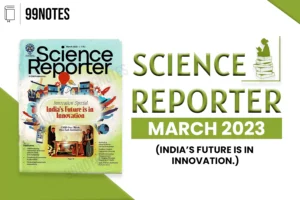20 May 2023 : Daily Current Affairs
DAILY CURRENT AFFAIRS
20-May-2023
Daily Current Affairs For UPSC ,Daily Current affairs of The hIndu and Indian Express.
1. RBI to pull out ₹2,000 notes from active circulation
Topic: GS2 – Governance
Issue:
- The Reserve Bank of India (RBI) has decided to withdraw ₹2,000 denomination banknotes from circulation as part of its “Clean Note Policy”.
- However, the ₹2,000 notes will continue to be legal tender, meaning they can still be used for transactions.
- A similar withdrawal of notes from circulation was previously undertaken in 2013-2014.
- The decision is expected to strain the system and cause anxiety and inconvenience to the public, similar to the days after demonetization.
- The RBI has advised the public to deposit their ₹2,000 notes into their bank accounts or exchange them for banknotes of other denominations at any branch.
2. How Gujarat is working to become India’s green hydrogen hub.
Topic: GS3 – Environment
Context:
- Gujarat aims to become India’s green hydrogen manufacturing hub by creating a production capacity of 8 metric tonnes per annum (MTPA) by 2035.
Issue:
- Memoranda of understanding (MoUs) have been signed with major corporates, including Reliance, Adani, ArcelorMittal, and Torrent, who have pledged significant investments in green energy projects in Gujarat.
- The State Cabinet has approved the allotment of 1.99 lakh hectares of land in the Kutch-Banaskantha border areas for these projects, with a 40-year lease initially.
- The government will provide incentives to industries investing in green hydrogen projects, with the requirement to meet certain production capacity targets within specific timeframes.
- India has set a target to become a net-zero emission country by 2070 and reduce carbon emissions by 45% by 2030, sourcing 50% of its energy from renewable sources.
- Gujarat expects around ₹10 lakh crore worth of investments in the green energy sector over the next 15 years.
- Companies like Reliance and Adani have committed significant investments in setting up renewable energy parks, green hydrogen parks, and manufacturing facilities for various renewable energy technologies.
- The National Green Hydrogen Mission has allocated funds to promote green hydrogen production capacity and renewable energy capacity addition in India, aiming to attract investment and create jobs.
3. Independence of SC is integral to the rule of law: Justice Joseph
Topic: GS2.
Context:
- Retiring Supreme Court judge, Justice K.M. Joseph, emphasized the importance of the independence of the Supreme Court in maintaining a democratic way of life and the rule of law.
Issue:
- He warned that it is not difficult for a democratic nation with a constitution to slide into chaos and undermine democracy.
- Justice Joseph urged the Bar to protect the ethos of the Constitution and democracy.
- Justice Ajay Rastogi, who is also retiring in June, stated that the independence of a judge should not be measured by whether their decisions are anti-establishment.
- He emphasized that judges base their decisions solely on the material before them and the pursuit of justice rather than making statements against the government to appease media or public opinion.
- Justice Rastogi highlighted the importance of patiently hearing all sides, allowing parties to argue, and delivering justice based on merits and due process.
4. SC is back to its full strength of 34 as CJI administers oaths to two new judges.
Topic: GS2.
Context:
- Chief Justice of India D.Y. Chandrachud administered the oath of office to Justices Prashant Kumar Mishra and K.V. Viswanathan, bringing the Supreme Court back to its full strength of 34 judges.
Issue:
Procedure for appointment of Supreme Court judge:
- Recommendations by the Collegium: The Supreme Court Collegium, consisting of the Chief Justice of India and a group of senior judges, recommends suitable candidates for appointment as Supreme Court judges. This recommendation is made based on various factors, including merit, seniority, and other considerations.
- Consultation with the government: The Collegium’s recommendation is then forwarded to the government for further consideration. The government is required to seek the opinion of the Chief Justice of India and other judges before making a decision.
- Background checks: The government conducts background checks and verifies the suitability of the recommended candidates. This may involve examining the candidate’s qualifications, past judgments, and overall suitability for the position.
- Presidential appointment: After the completion of the consultation process and background checks, the President of India, who acts on the advice of the government, appoints the recommended candidates as Supreme Court judges.
- Swearing-in ceremony: The appointed judges take the oath of office in a formal swearing-in ceremony before the Chief Justice of India or another senior judge.
5. Even limited arsenic exposure can mar cognitive ability: study.
Topic: GS2 – Health, GS3 – Environmental Pollution
Context:
- A recent peer-reviewed study suggests that even low levels of arsenic consumption from contaminated groundwater in India may impact cognitive function in children, adolescents, and young adults.
Issue:
- The study found that individuals exposed to arsenic had reduced grey matter in the brain and weaker connections within key regions associated with cognitive functions.
- The researchers believe that chronic exposure to arsenic could be a widespread issue affecting a large portion of the global population.
- The study involved linking urine samples (to estimate arsenic exposure), computerized cognitive function tests, and brain imaging of 1,014 participants from different regions in India.
- Arsenic exposure has been shown to be particularly harmful to the poor.
- While the impact of arsenic on individual cognition was limited, it was more pronounced when considering the collective effect.
- The researchers plan to further investigate the relationship between arsenic exposure and brain function, as well as explore the role of other environmental factors, such as air pollution.
Efforts by the Central and State governments in Bihar and West Bengal have been made to address arsenic contamination, including promoting piped water access and installing arsenic removal plants.
6. Govt. plays angel over tax on start-up funding
Topic: GS3 – Economy
Context:
- The government has proposed changes to the angel tax on start-up investments from non-resident investors at a premium over fair market value.
Issue:
- Banks, insurers, sovereign wealth funds, and SEBI-registered Foreign Portfolio Investors (FPIs) may be exempt from the tax.
- The Central Board of Direct Taxes (CBDT) plans to amend Rule 11UA to include five additional valuation methods for non-resident investors.
- Valuation reports from merchant bankers submitted within 90 days prior to the investments would be accepted, with a 10% variation allowed for forex fluctuations and other economic indicators.
- Price matching for resident and non-resident investors would be applicable for investments made by Venture Capital Funds.
For Enquiry

20 May 2023 : Daily Current Affairs

Madhavacharya (1238–1317 or 1199–1278)

Industrial Infrastructure UPSC

Chapter 9: Industry Steady: Recovery

Science Reporter: India’s Future is in Innovation.

19 May 2023 : PIB

19 May 2023 : The Hindu Editorial

19 May 2023 : Daily Current Affairs

18 May 2023 : The Hindu Editorial

18 May 2023 : PIB
Uncategorized 20 May 2023 : Daily Current Affairs The Hindu Editorial
12-May-2023
Daily Current Affairs For UPSC ,The Hindu Editorial Summary
Facebook-f
Twitter
Youtube
1.Marriage…
evaluation of the rajput states upsc Madhavacharya (1238–1317 or 1199–1278) Madhavacharya was born in a Brahmin family in the Udupi district of Karnataka.
Madhavacharya propounded…
Infrastructure Industrial Infrastructure UPSC Infrastructure is the set of provisions that serve a country, city, or other area. It encompasses…
Economic Survey Chapter 9: Industry Steady: Recovery Synopsis
The Indian industry is central to the Indian economy, contributing to about 30% of the total…
Science Reporter Science Reporter: India’s Future is in Innovation. Article 1: Make Education more creative:
Context:
India is home to the world’s largest youth population….
PIB 19 May 2023 : PIB PRESS INFORMATION BUREAU
19-May-2023
Daily Current Affairs For UPSC ,The PIB ( Press Information Bureau…
The Hindu 19 May 2023 : The Hindu Editorial The Hindu Editorial
19-May-2023
Daily Current Affairs For UPSC ,The Hindu Editorial Summary
Facebook-f
Twitter
Youtube
1. A…
Daily Current Affairs 19 May 2023 : Daily Current Affairs DAILY CURRENT AFFAIRS
19-May-2023
Daily Current Affairs For UPSC ,Daily Current affairs of The hIndu…
The Hindu 18 May 2023 : The Hindu Editorial The Hindu Editorial
18-May-2023
Daily Current Affairs For UPSC ,The Hindu Editorial Summary
Facebook-f
Twitter
Youtube…
PIB 18 May 2023 : PIB Press Information Bureau
18-May-2023
Daily Current Affairs For UPSC ,The PIB ( Press Information Bureau…

